Pygmy goat farming is popular throughout the world. Pygmy goats are becoming increasingly popular as pets and for their milk, meat, and fiber. Pygmy goats are a small, hardy breed of domestic goats. They originated in West Africa. With the right business plan and equipment, it’s possible to start a profitable pygmy goat farm with all the necessary elements for success.
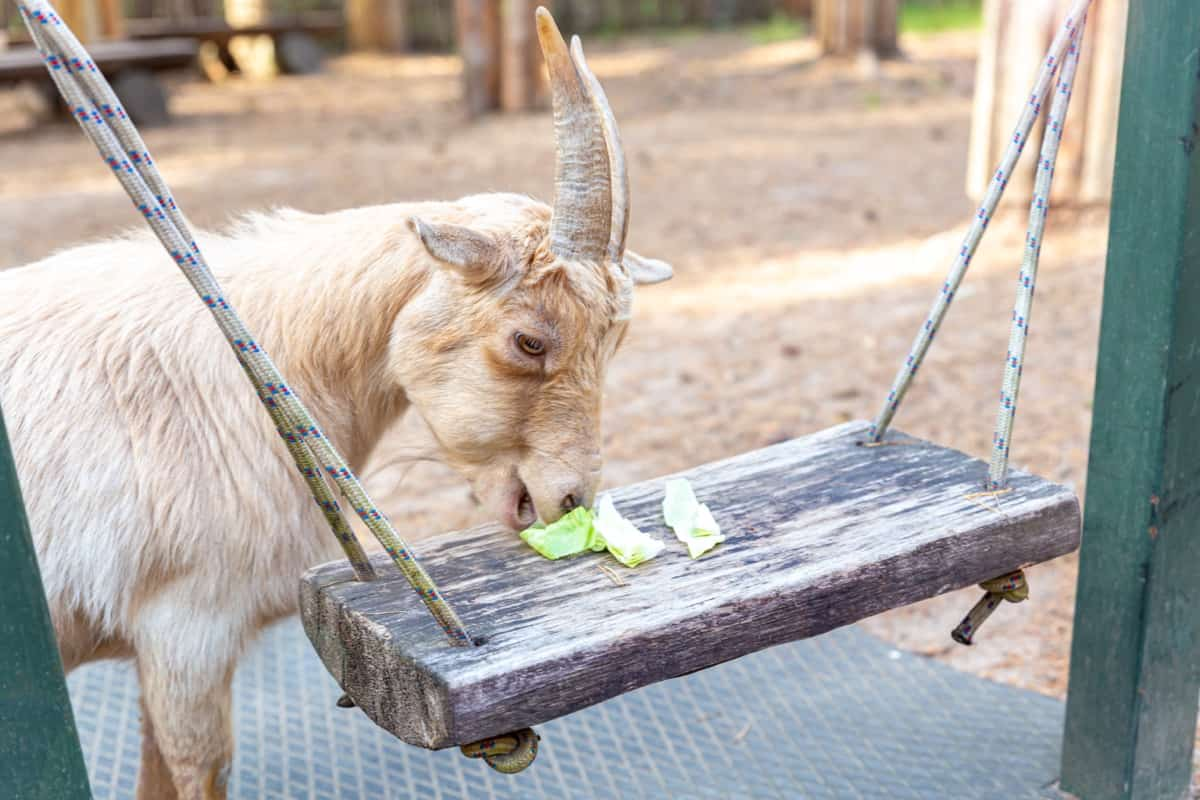
How to Start Profitable Pygmy Goat Farming
What You Need to Start a Pygmy Goat Farm
Starting a pygmy goat farm can be profitable, but some important business requirements must be met to succeed. You will need a reliable source of pygmy goats. Several reputable breeders can provide healthy and well-bred animals. Firstly, you need to have a minimum of one acre of land to build your farm. The land should be fenced to keep the goats contained. You will also need a shelter for the goats and a water source. In terms of equipment, you will need some basic fencing materials and gates. You will also need feeders and hay racks for the goats.
You will need to create suitable housing and fencing for your goats. Pygmy goats are small animals and do not require large amounts of space but need access to fresh water and shelter from the elements. Then, develop a feeding and care plan for your goats. Proper nutrition is essential for keeping goats healthy and productive. You will need to market your farm to attract customers. There are many ways to promote goat farms, including online marketing, word-of-mouth advertising, and participating in local events.
Why Start a Pygmy Goat Farm?
Pygmy goats are a hardy and adaptable breed that can be kept in various settings, making them a versatile livestock option for small-scale farmers. Pygmy goats are also relatively low-maintenance animals, requiring less time and effort to care for than larger livestock breeds. Furthermore, there is a growing demand for pygmy goats as pets and breeding stock, making goat farming a potentially profitable endeavor.
In case you missed it: Key Rules to Start Totapari Goat Farming from Scratch: Requirements and Business Plan
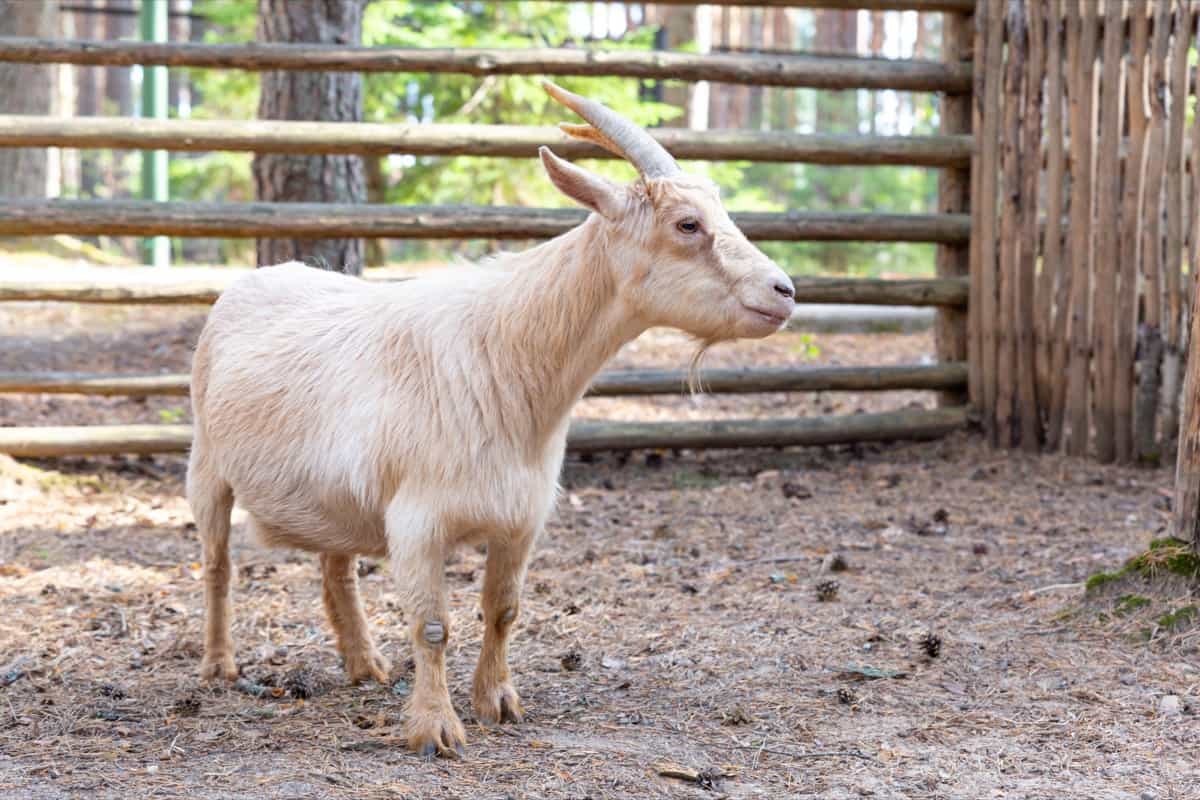
Goats are generally hard animals and don’t require a lot of maintenance, but there are some things you need to do to keep them healthy and happy. Pygmy goats are known for their friendly nature and docile nature. They are social animals that thrive on human interaction and enjoy being around people. Pygmy goats are also very curious and intelligent, making them fun pets. Pygmy goats are a small breed of domesticated goats. They are typically about one-third the size of a standard goat, and their smaller stature makes them easier to handle and care for.
Pygmy goats are friendly and docile, making them popular pets. However, they can also be used for milk production and other farm tasks. Pygmy goats are small and low-maintenance, making them easy to care for. Pygmy goats are very social creatures and enjoy being around people, which makes them great companions. Pygmy goats can be used for milk, wool, or both. Pygmy goats are relatively hardy animals and can withstand hot or cold weather better than other livestock breeds.
If you’re thinking about starting a pygmy goat farm, the first step is to develop a business plan. This should include an assessment of your land and resources, an overview of your target market, and financial projections for your operation. Once you have a solid business plan, you can begin sourcing stock, building housing and fencing, and putting other infrastructure in place. With proper planning and execution, starting a profitable pygmy goat farm is within reach.
Housing Requirement to Start a Pygmy Goat Farming
The first step in starting a pygmy goat farm is to find suitable housing for your goats. You must provide them with enough shelter to move around freely and plenty of ventilation to keep them cool in the summer. Various options are available for goat housing, so you must decide what type of structure will work best for your farm.
Housing for pygmy goats can be as simple as a three-sided shelter with a roof. The floor can be dirt, gravel, or concrete. Pygmy goats are very sturdy and can withstand cold weather, so you don’t need to heat their housing. They also don’t need air conditioning in the summer. You will need to provide fresh water and hay for them at all times. Goats are social creatures and prefer to live in pairs or groups, so ensure you have enough space for more than one goat.
In case you missed it: Feed Management of Sheep and Goats: Formulation, Ingredients, Organic, DIY Feed mix, and Feeding Practices
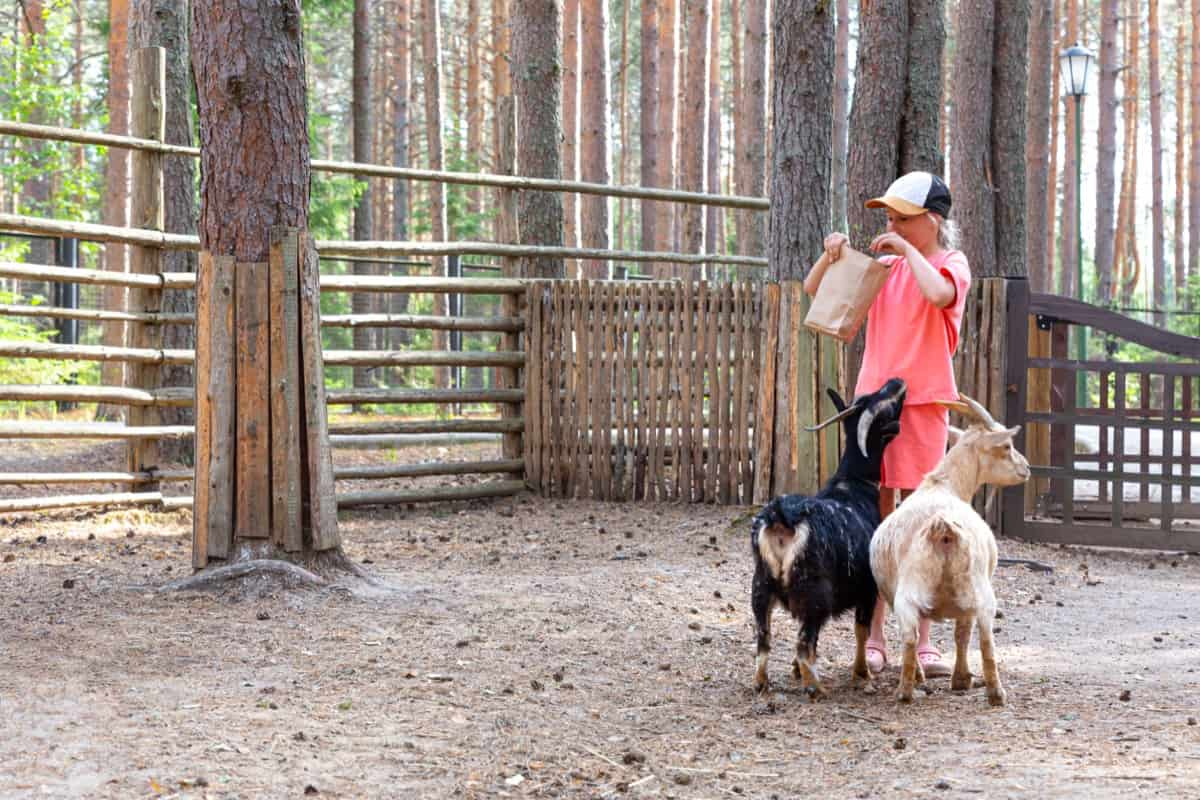
Water Requirement to Start a Pygmy Goat Farming
- Water is an essential requirement for all forms of life, and this is especially true for pygmy goats. These animals always need access to clean, fresh water to stay healthy and thrive. Without adequate hydration, pygmy goats can become dehydrated and weak, leading to serious health problems.
- There are different ways that you can provide water for your pygmy goats. One option is to use a traditional bucket and bowl system. This involves filling buckets with fresh water and placing them in the goat pen for the animals to drink from as needed.
- Another option is to install a watering system specifically designed for goats. These systems can be either automatic or manual, providing a consistent source of fresh water that your goats can access whenever needed.
- No matter your chosen method, ensuring that the water you provide for your goats is clean and free of contaminants is important. Be sure to clean and disinfect your goat waterer regularly, and consider having your water tested by a professional if you have any concerns about its quality.
Tips for Successfully Running a Pygmy Goat Farm
- Location is key; choose an area with ample grazing land and good fencing.
- Build good relationships with your neighbors – they can be a valuable resource and may even be interested in purchasing goats from you down the line.
- Ensure you have the necessary permits and licenses before getting started.
- Choose a healthy stock of goats and do your best to maintain their health through proper nutrition and care.
- Keep careful track of your finances from the start – this will help you make sound decisions as your business grows.
- Be prepared for hard work; running a successful farm takes much time and effort but can be rewarding.
In case you missed it: Homemade Goat Feed Recipes: How to Make, Organic, Ingredients, and Simple DIY Goat Feed Mix
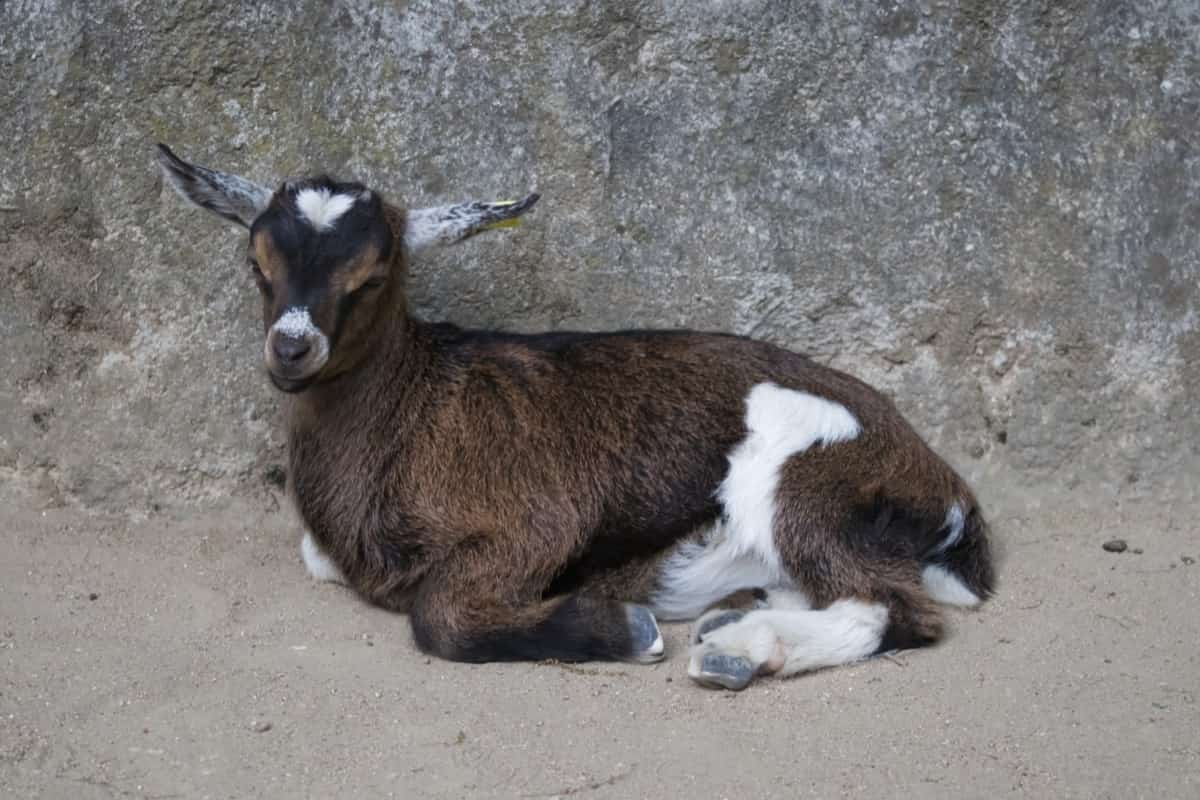
Feeding Management to Start a Pygmy Goat Farming
- Goats are browsers, not grazers like cattle. They prefer to eat weeds, brush, and browse. Feeding goats is relatively simple and inexpensive. They only need good-quality hay, fresh water, and a mineral block for added nutrition.
- Hay is important for your goat’s diet and should always be available. Goats will also eat grass, but hay gives them the nutrients they need to stay healthy. Depending on the type of hay, you may need to supplement your goats’ diet with additional protein or minerals.
- Fresh water should always be available, and you should check it regularly to ensure it’s clean and debris-free. A mineral block is an important part of a goat’s diet and provides essential vitamins and minerals. It’s also a good source of salt, which helps goats stay hydrated in hot weather.
Best Fencing for Pygmy Goats
- Goat fencing is an important part of successful pygmy goat farming. Generally, goats are browsers and prefer to eat leaves and vegetation rather than grass. This means that they need to have access to a variety of browse plants to stay healthy.
- Goats are also very curious creatures and like to explore their surroundings. This can lead them into trouble if they’re not fenced in properly. Ensure your fence is tall enough – at least 4 feet – and has no gaps a goat could squeeze through.
- Several different types of fencing can be used for goats, including wire mesh, electric, or even regular farm fencing. Whichever type you choose, ensure it’s sturdy and keeps your goats safely contained.
Requirements To Start a Profitable Pygmy Goat Farming Business
You will need a suitable piece of land to build your farm. This land should be large enough to accommodate the number of goats you plan to keep and any other animals you want to add to your farm. You must ensure that the land is zoned for agricultural use and that no restrictive covenants prohibit goat farming. Once you have secured the necessary land, you must obtain your local government’s proper permits and licenses.
Depending on where you live, this could involve obtaining a zoning permit, a business license, and a livestock permit. Once the necessary paperwork is in order, you can begin construction on your farm. Regarding housing, goats do not require much space and can be kept in small enclosures. However, they need fresh water, hay, or other food sources. You must also provide shelter for your goats during extreme weather conditions.
In case you missed it: Feed Management of Sheep and Goats: Formulation, Ingredients, Organic, DIY Feed mix, and Feeding Practices
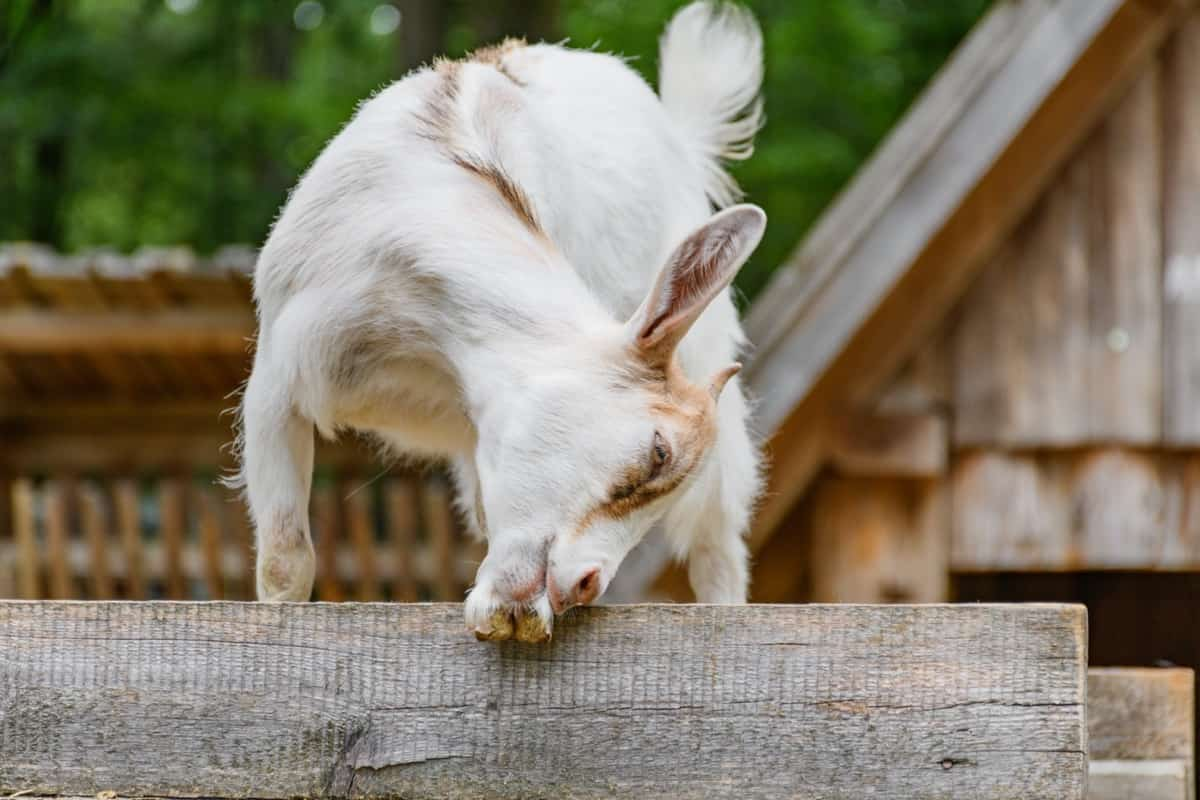
Regarding feeding your goats, they are quite versatile and can eat various foods. However, it is important to ensure their diet is balanced and nutritious. A good way to do this is by providing them access to fresh grass or hay and supplementing their diet with grain or pellets specially formulated for goats.
Steps to Create Pygmy Goat Farming Business Plan
- The location of your farm will play a big role in its success. You’ll need to find an area with enough land for grazing and housing, access to water, and good transportation links if you plan on selling your goats’ milk or meat commercially.
- Develop a business plan, including your goals for the farm, your target market, your financial projections, and your strategies for marketing and selling your goats.
- Build or purchase housing for your goats. Goats need access to clean water, fresh hay, and plenty of room to roam.
- Learn about the pygmy goat industry and what it takes to be successful. Read books, talk to other farmers, and attend trade shows or conferences.
- Estimate starting and running your farm costs, including purchasing goats, feed, housing, and equipment. Make sure to allow for unexpected expenses as well.
- Once you have a good location for your farm, you’ll need to build a shelter for the goats (barns or sheds), fencing, pens or paddocks, and other infrastructure.
- Learn about goat care and management practices. Goats are relatively easy to care for, but you must know some important things to keep them healthy and happy.
Tips for Maintaining the Goats’ Health
- Provide plenty of fresh, clean water at all times. Goats are very thirsty animals and will drink up to 10% of their body weight in water each day. So make sure they have access to clean water at all times.
- Feed them good quality goat feed. Goats need a diet that is high in fiber and low in sugar. You can buy goat feed from your local farm store or make your own by mixing hay, oats, barley, and other grains.
- Give them access to fresh grass and hay. In addition to their regular feed, goats also need access to fresh grass and hay for proper digestion. You can supplement it with alfalfa hay if you live in an area with little green grass.
- Goats are very active animals and need plenty of space to run around and play. Make sure they have plenty of space to roam and play. A minimum of 1 acre per goat is recommended.
In case you missed it: Key Rules to Improve Feed Conversion Ratio (FCR) in Sheep: For Profitable Sheep Farming
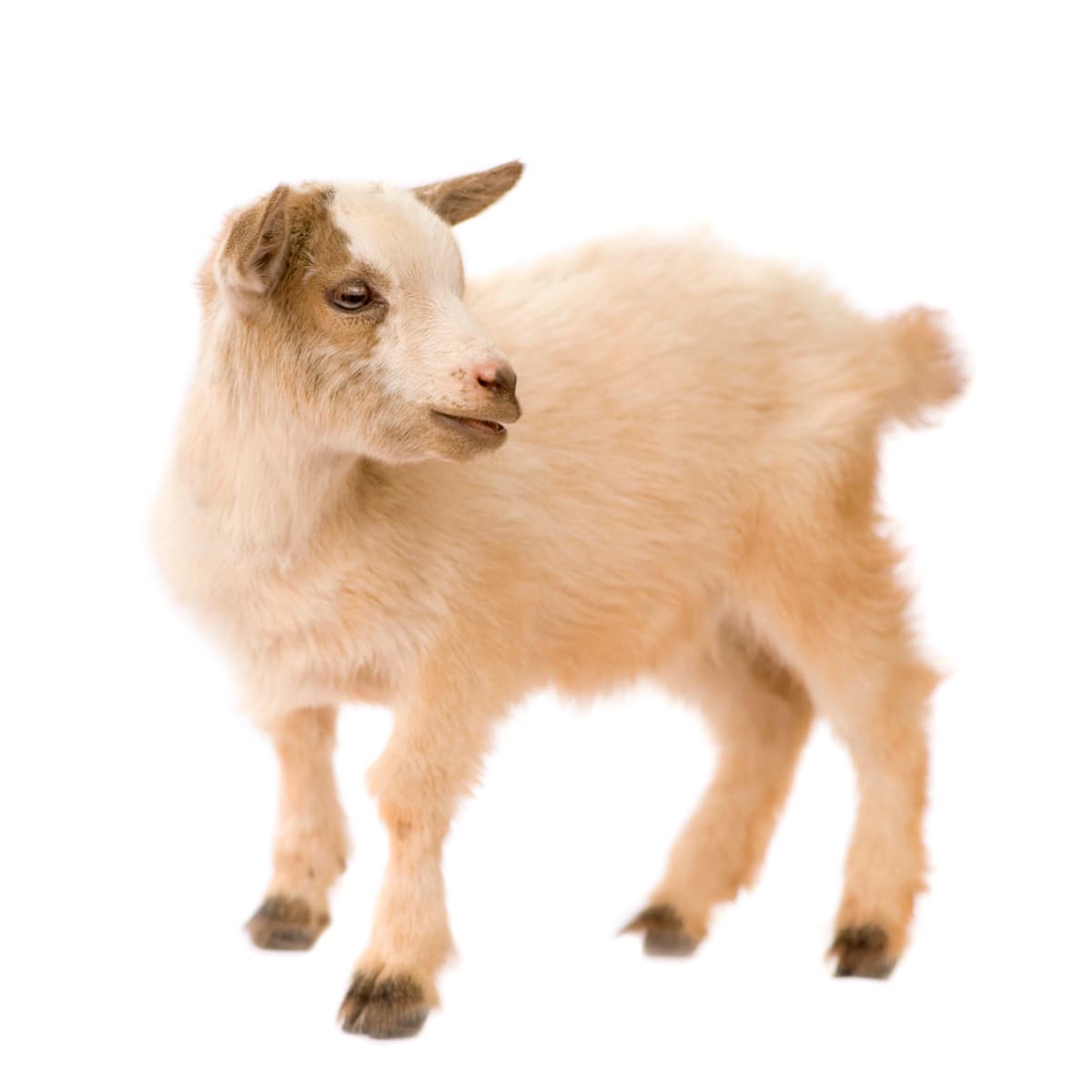
- Keep their living area clean and free of debris. Goats are very clean animals and prefer a clean, clean area free of debris or waste. They also need access to clean water and shelter from the elements.
- Besides their physical needs, goats also need plenty of social interaction. They are very social creatures and do their best when they live in herds. This means that you will need to have enough space for them to roam and socialize with each other.
- Goats are relatively easy animals to care for, but there are still some things that you need to be aware of. For example, goats can be susceptible to certain diseases and parasites. Therefore, having a good vet on call who can help you keep your goats healthy is important.
- Overall, starting a pygmy goat farm can be a rewarding experience. Researching and ensuring you are prepared for the challenges of running a farm is important.
Conclusion
Pygmy goat farming can be a very profitable business venture. For starting a goat farm, it is essential to understand the needs of this unique breed of goats and the necessary business plan and requirements for success. Pygmy goats are a type of miniature goat typically about one-quarter the size of a regular goat. They are known for their small stature and friendly nature, making them a popular choice for small-scale goat farming.
- How to Make Houseplants Bushy: Effective Tips and Ideas
- Innovative Strategies for Boosting Coconut Pollination and Yield
- Pollination Strategies for Maximum Pumpkin Yield
- The Complete Guide to Chicken Fattening: Strategies for Maximum Growth
- Natural Solutions for Tulip Problems: 100% Effective Remedies for Leaf and Bulb-Related Issues
- Revolutionizing Citrus Preservation: Towards a Healthier, Greener Future
- Natural Solutions for Peony Leaf and Flower Problems: 100% Effective Remedies
- Maximizing Profits with Avocado Contract Farming in India: A Comprehensive Guide
- Natural Solutions for Hydrangea Problems: 100% Effective Remedies for Leaf and Flowers
- The Ultimate Guide to Choosing the Perfect Foliage Friend: Bringing Life Indoors
- From Sunlight to Sustainability: 15 Ways to Use Solar Technology in Agriculture
- The Ultimate Guide to Dong Tao Chicken: Exploring from History to Raising
- The Eco-Friendly Makeover: How to Convert Your Unused Swimming Pool into a Fish Pond
- Mastering the Art of Delaware Chicken Farming: Essentials for Healthy Backyard Flocks
- 20 Best Homemade Fertilizers for Money Plant: DIY Recipes and Application Methods
- How to Craft a Comprehensive Free-Range Chicken Farming Business Plan
- Brighten Your Flock: Raising Easter Egger Chickens for Beauty and Bounty
- How to Optimize Your Poultry Egg Farm Business Plan with These Strategies
- Subsidy for Spirulina Cultivation: How Indian Government Schemes Encouraging Spirulina Farmers
- Ultimate Guide to Raising Dominique Chickens: Breeding, Feeding, Egg-Production, and Care
- Mastering the Art of Raising Jersey Giant Chickens: Care, Feeding, and More
- Ultimate Guide to Raising Legbar Chickens: Breeding, Farming Practices, Diet, Egg-Production
- How to Raise Welsummer Chickens: A Comprehensive Guide for Beginners
- How to Protect Indoor Plants in Winter: A Comprehensive Guide
- Ultimate Guide to Grow Bag Gardening: Tips, Tricks, and Planting Ideas for Urban Gardeners
- Guide to Lotus Cultivation: How to Propagate, Plant, Grow, Care, Cost, and Profit
- Agriculture Drone Subsidy Scheme: Government Kisan Subsidy, License, and How to Apply Online
- Ultimate Guide to Raising Araucana Chickens: Breed Profile, Farming Economics, Diet, and Care
- Bringing Hydroponics to Classroom: Importance, Benefits of Learning for School Students
- Ultimate Guide to Raising Polish Chickens: Breed Profile, Farming Economics, Diet, and Care
- Ultimate Guide to Raising Australorp Chickens: Profile, Farming Economics, Egg Production, Diet, and Care
- Silkie Chicken Farming: Raising Practices, Varieties, Egg Production, Diet, and Care
- Sussex Chicken Farming: Raising Practices, Varieties, Egg Production, Diet and Care
- Homemade Feed Formulations for Livestock: Discover Cost-effective Starter to Finisher Feed Recipes
- 20 Best Pig Weight Gain Supplements: Top Swine Weight Gain Formulas
- Ultimate Guide to Elderberry Farming: Propagation, Planting, Yield, Cost, and Profit